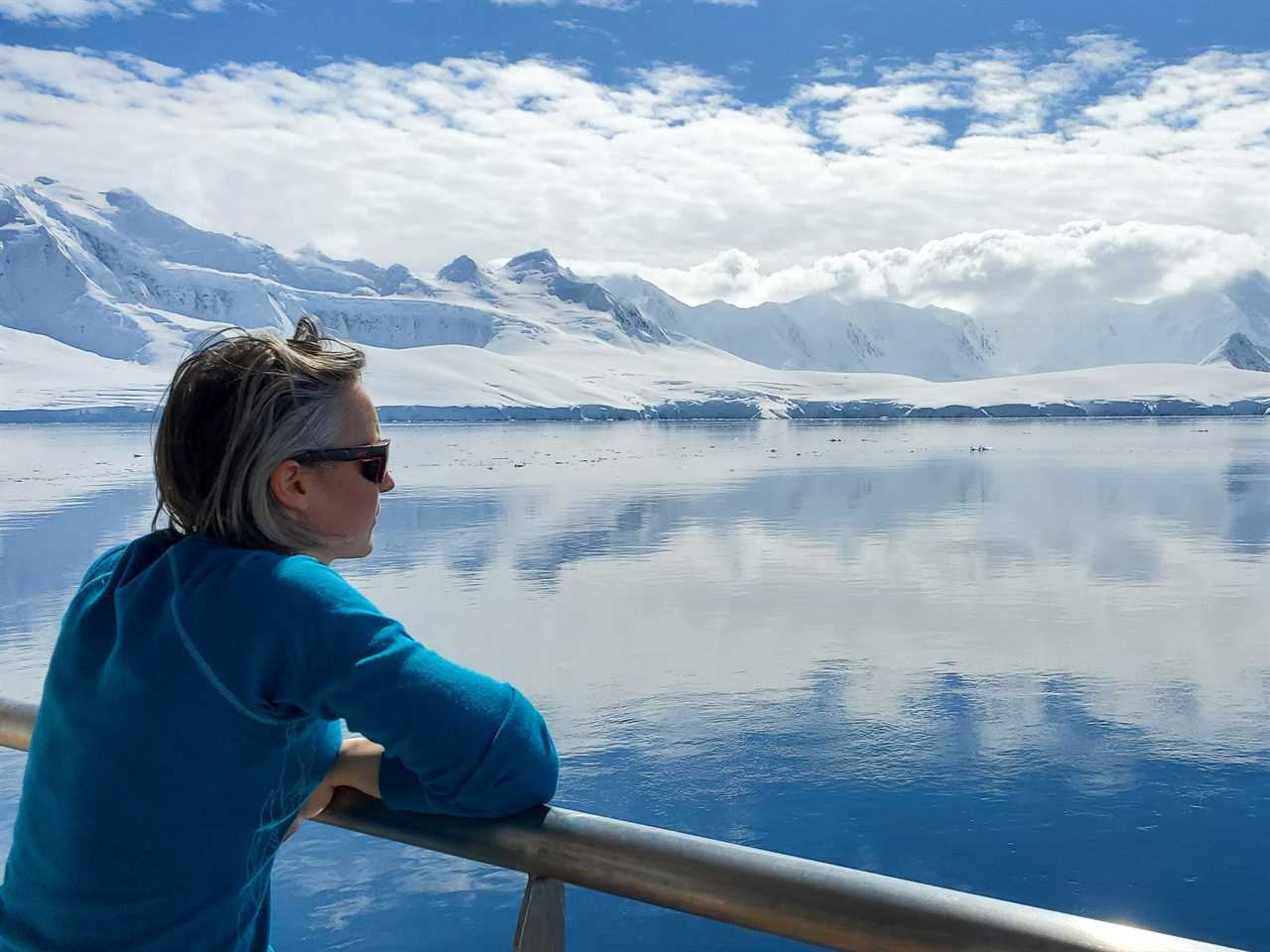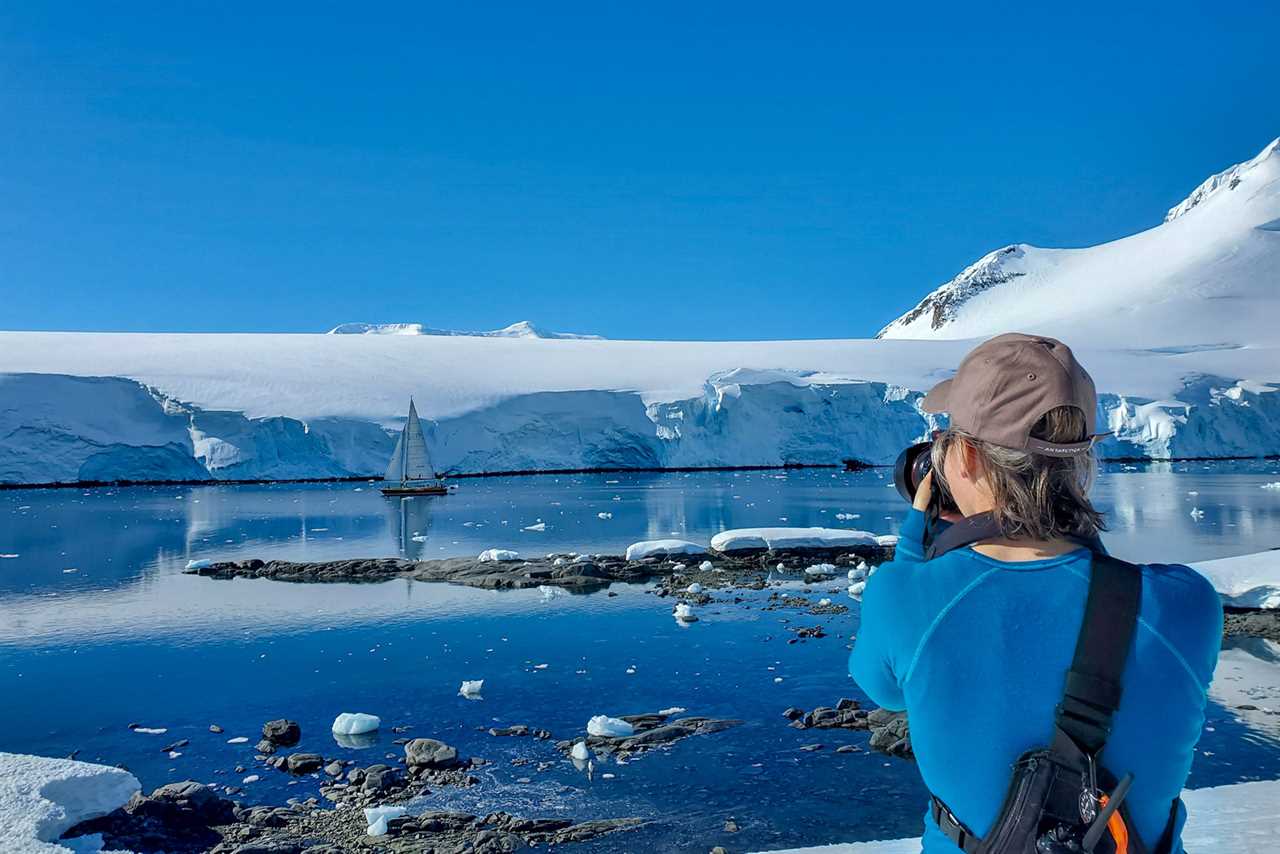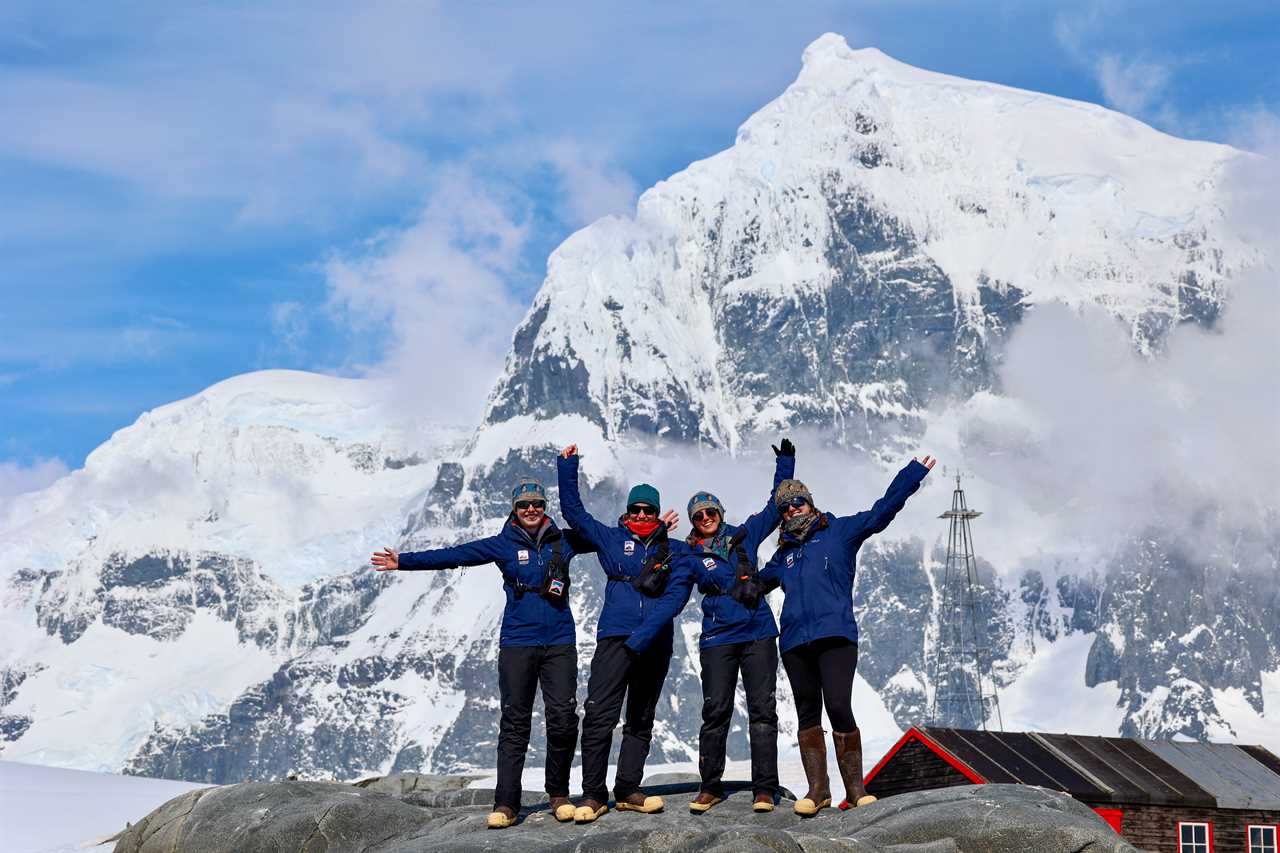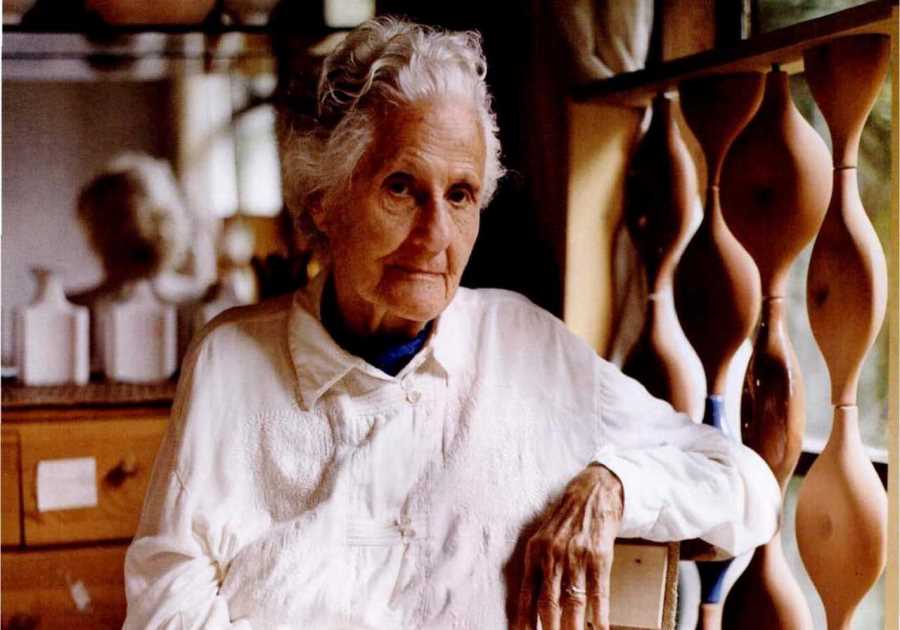
Clare Ballantyne | UKAHT
- Lucy Bruzzone is one of several women who spent the last five months working in Antarctica.
- The team counted penguins for monitoring purposes and staffed the world's most remote post office.
- Bruzzone was surprised how much of her work still required a laptop — just like back at home.
This as-told-to essay is based on a conversation with Lucy Bruzzone, one of four women chosen by the UK Antarctic Heritage Trust to live and work in Port Lockroy, Antarctica, from November 2022 to March 2023. The group's responsibilities included running the world's most remote post office and museum, counting gentoo penguins for monitoring purposes, coordinating ship visits to the island, and educating visitors about the site's history. This has been edited for length and clarity.
I've always been fascinated by ice and the polar regions and I'd been exploring opportunities to visit Antarctica for many years. I have a degree in geography and I'm a sustainability education team director for the University of Cambridge Institute for Sustainability Leadership, where I support business and political leaders to understand their role in making positive change for people and planet. I previously ran the Hong Kong office for the environmental NGO Earthwatch, where I supported field research projects, including species monitoring and cultural heritage preservation.
So, the context of my daily work is climate change, and we are seeing increasing impacts every year. I was keen to understand these wilderness areas for myself before no ice remains — and to bring back to my day-to-day work a life-changing experience that could help me explain more deeply the reasons we urgently need to take action.
I had spent time in the Arctic before but not the Antarctic. I thought it might be similar. My main thoughts were of snow, ice, cold, remoteness, science, adventure, and hardship.
Through my work and studies, I was aware of how the continent it is affected by climate change, with the Peninsula, where we stayed, seeing a 3.2°C (37.76°F) temperature increase in the second half of the 20th century, more than three times the global average, and the strengths of the winds over the Southern Ocean increasing by 15% since 1980. At the same time, changes in Antarctica affect our lives at home, destabilizing systems we depend on for food, water, and security. There are implications for sea-level rise, increased extreme weather globally, and a loss of marine species.
We often talk about this but it's not always easy to imagine what this means in practice, so I hoped to gain insight into this.

Clare Ballantyne | UKAHT
The scale of Antarctica was far greater than I imagined. Everything was big, from the icebergs and mountains to the force of the winds and the weather. I witnessed some huge avalanches, very strong winds, and regular glacier calving, where ice chunks break off of a glacier. We as individuals were really insignificant, yet we're heavily influencing change here. I was amazed at this disconnect.
It was also far wetter than I ever expected. We arrived to meters of snow and this continued throughout December. We then had almost constant rain in January. Overall, only one-fifth of our days there were without precipitation.
The average temperature while we were there was 2°C (35.6°F). With wind chill, we experienced temperatures far below -10°C (14°F), but we also had days of 14°C (57.2°F), so it was more like a wet British summer.
Expedition teams that had visited the peninsula for years reported some of the worst conditions they'd ever experienced. It was also interesting to see how the penguins reacted to the weather. They came ashore when bad weather was imminent; while for many, daily life continued throughout the worst storms, others took shelter behind rocks and our buildings.

Keirron Tastagh
There was a sense of community I hadn't expected. We had a symbiotic relationship with the ships, which gave us fresh water, food, laundry, showers, weather forecasts, and transportation. We got to know and befriend the expedition teams and ship crew. In turn, we worked hard to share the stories of our historic site to help guests get the most from their visits and inspire them to keep caring for the continent after they return home.
There were actually far more similarities than differences from life at home. Work was more physical day-to-day, but I still spent a lot of time working at a laptop for someone in Antarctica!
We had ships visiting us almost every day so while we were remote, we actually rarely felt remote and certainly not isolated. At home, I was used to working with global teams on international projects, but not often getting to meet them. At Port Lockroy, I worked with people from all over the world and met them on a daily basis.
Read More
By: [email protected] (Sarah Jackson)
Title: I lived and worked in Antarctica for 5 months without WiFi or running water. Here's what surprised me.
Sourced From: www.businessinsider.com/biggest-surprises-living-working-antarctica-worlds-most-remote-post-office-2023-5
Published Date: Sun, 14 May 2023 10:24:00 +0000
.png)





